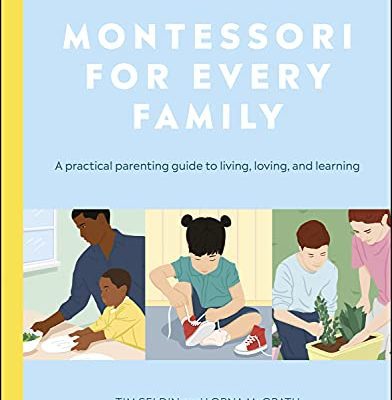Note from the Director: This article includes so many tips for helping children and adolescents in the transition from one school to another. It is packed with practical ways to be of support to them whether they are changing schools or levels within schools. Much of the material applies to all ages, but you will need to determine what is age appropriate for your child or adolescent’s stage of development.

Change is a part of life. It is not always easy, but it speaks to the beautiful ebb and flow of our existence. When we trust the transitions, the changing seasons, and all the new roads we choose to take, we can fully celebrate our journey. The ability to gracefully embrace and receive change is a key to living a fulfilled, meaningful life and is a powerful part of our growth. If we can help our children embrace change, they will have the foundation to meet life with the resilience, optimism, fortitude, and joy that it demands.
Just as this age group is learning to cope with the emotional and physical turbulence of early adolescence, along comes the new challenge of transitioning from elementary to middle school; it also comes with new expectations, from academic to social. Changing schools from a Montessori school to a more traditional school or changing levels within a Montessori school is the perfect opportunity to teach about graceful transitions and embracing change.
All children manage change differently, but most Montessori students adapt to their new school environment fairly quickly, making new friends and experiencing success, within the definition of success understood in their new school. This phenomenon is possible because they have the advantage of growing up in Montessori. Montessori programs focus on helping children develop self-motivation, confidence, independence, problem-solving, and coping strategies for new situations, along with a strong sense of respect and responsibility. These skills, along with supportive parents and caregivers to help them embrace the change, will serve them well in any transition they make. What follows are suggestions to help make the school transition smoother for all.
Follow Montessori Principles In The Home
Following Montessori principles at home can be an impactful way of nurturing and maintaining skills and lessons that your tween learned from their experience in the Montessori school. Encouraging independence, love of learning, curiosity, self-motivation, and order are fundamental to the Montessori approach and, if nurtured, will continue to serve your tween as they make this transition.

Model A Positive Attitude About Change
Children are regularly learning how to be adaptable and flexible from their parents/caregivers. When children see you try new things, take risks, and handle change with grace, they are more likely to follow suit.
Talk to your child about change in a positive way. For example, you might say, “I am a bit nervous about starting a new job today, and it’s ok to be nervous. I am going to make myself feel better by listening to some good music. Even though I am nervous, I am also excited about meeting new people and making new friends.”
When your tweens are anxious, help them change the story they are telling themselves about what might happen. Encourage them to imagine all the great things that could happen instead of all the things that could go wrong. By changing the story and the images, anxiety can turn to excitement.
Acknowledge The Uncertainty And Loss
Acknowledging the fear and anxiety regarding the change that both you as a parent/caregiver and your tween is experiencing makes it much easier to talk about and embrace the change together. This is a good opportunity to explain the differences between Montessori and traditional schools, emphasizing the positives of both school systems.
While we want to be positive about the change, change also means that there will be a loss of friends, teachers, familiar routines, etc. Let your tween experience the sadness, and let them know they can speak to you about it or talk it over with friends that are experiencing the same thing.
Offer your tween a sense of agency by involving them in making choices… it can be as simple as letting them select a new backpack.
Practice Mindfulness
Practice mindfulness with your tween; it will help both of you to accept the present moment as it is, without judgment. This mindset can be useful when facing unexpected changes. After acknowledging your anxiety or fear and telling yourself that it’s ok to feel this way at this moment, carry on in a way that purposefully isn’t stuck in the negative mindset.
Show Empathy
Acknowledging your tween’s emotions will help them feel seen and heard. For example, a parent/caregiver could say, “I understand that moving schools is a big fear of yours. There will be new things that you are not used to; I can see how not knowing what to expect can cause anxiety.”
Rephrasing the tween’s emotions can help to increase their self-awareness and emotional intelligence, which will help them identify what they are feeling and can thereby talk about it.
Engage In Open Communication
Talking and listening are key to helping your tween manage change. It is a valuable opportunity for you to sit and talk with your tween about what they think about this upcoming change, what is making them hesitant or nervous about this new opportunity, and what you can do together to make the process easier.
Find The Root Of Anxiety And Fear
Ask questions to help guide your tween to what may be truly bothering them. For example, “What are you feeling right now?” or “What feels scary to you about this?” or “What is the thing you think about most regarding this change?”
Encourage An Open Mind Towards Change
Once you get a handle on what is causing them the most stress or fear, you can try to address it with your child ahead of time to help the change go smoothly. Start by asking them to reflect on what has helped them through other transitions they have had to make in their life and what they would add to that process to support this change. Change can feel overwhelming and scary to tweens because it often signals a loss of control. Offer your tween a sense of agency by involving them in making choices regarding this change, it can be as simple as letting them select a new backpack.
Maintain Routines Yet Add New Ones
If possible, maintain your family’s normal routines. It will provide a sense of normalcy and security for your tween, since they will be experiencing new routines at school. You may also want to consider creating new routines for them to associate with this new phase of their life.
For example, you may decide to have family game nights on Thursdays. Get your tween involved in deciding on a new addition to the family schedule. Connecting as a family provides comfort for tweens who are navigating change, and these new activities can help.
Be Patient

“It will take the time it takes” for your tween to adjust to a new school. Don’t assume either that they will have a hard time adjusting or that they will have an easy time adjusting.
Be patient and let your child know you are there for them. Reassure them that they are going to have a great school year, and, before they know it, they’ll no longer feel like the new kid.
PREPARE FOR LOGISTICAL, SOCIAL, AND ACADEMIC CHANGE
Researchers have found that tweens anticipating the move to middle school worry about these aspects of the change: the logistical, the social, and the academic.
LOGISTICAL
- Accompany your tween on a campus or new-environment tour and orientation. The better you understand the logistics of the school and the program, the more you can support your tween. Invite their friends who are also making the transition.
- Ask for a copy of your tween’s schedule and mark the locations and times of their classes on the school map. Ask for the length of the break between classes. Walk the route between classes with them. Time it out with your tween, so they can see how long it takes to walk from class to class.
- If you have an opportunity, sign your tween up for any summer programs that may be offered by the school for incoming students. Not only will your tween get to know the campus, but they also will have the opportunity to make some friends in a much more relaxed atmosphere.
- Review the rules and requirements in the student handbook. Ask the school staff for any clarification or questions you may have before the beginning of school.
- If the school has lockers, make sure they know how to open the lock. Or, buy your tween a lock with time to practice opening and closing it.
SOCIAL
- Talk to your tweens often and openly about friendship. Equip them with the information and knowledge to make good friendship choices. Talk about how they should treat other people and how they should allow other people to treat them. Encourage them to stay away from gossip and drama. Help them learn how to navigate conflict and how to resolve disagreement. Remind them to be kind and inclusive.
- Emphasize the importance of being who they are. Remind them that it is more important to be yourself than to fit in. Encourage them to spend time with people they like and with whom they are comfortable, but to also look for less obvious connections and be open. Talk about the importance of not compromising their values to gain friends.
- Support your tween’s personal interests. Suggest your tween join sports teams, school clubs, or extracurricular activities.
- Offer them opportunities to spend time with any new friends they have made.
- If they are experiencing loneliness, you could arrange a get together with old friends.
- Encourage your tweens to join conversations or activities. You can role play how to join without interrupting or how to add something interesting or relevant to the conversation in progress.
- Let them see your own positive supportive joyful friendships.
- Get to know the tweens that your tween spends time with, and, if possible, their parents or caregivers.
- Discuss how their bodies are (or will be) changing and the importance of self-care and good hygiene.

ACADEMIC
- Meet with your tween to discuss academic expectations in the new school and at a new level and how the family is going to support them.
- If you have concerns about your child’s academic needs, meet with the middle school’s academic team in the spring (before they begin school) to discuss your concerns.
- Reach out to the teachers to introduce yourself and offer any support. You can give teachers some information about your child regarding their strengths and where they experience challenges. This introduction is a good time to give teachers strategies that have been successful specifically for your child.
- Find out if there is a homework hotline or if there is a tutor service.
- Help your tween with their time management and organizational skills. Work together on a schedule that allows for study time, social time, chore time, etc. Show your tween how to organize binders, set up assignment calendars, and use an academic planner.
- Receiving grades may be new for a Montessori student. Try not to react either way to the grades. Making sure your tween is happy and navigating the expectations of the new system is the most important factor in the first couple of months.
- Stay connected to your tween’s schoolwork by lending support when needed. Know due dates for homework, projects, or other tasks. Periodically check to see if your tween is getting assignments done, yet continue to build independence.
- This should not be a problem for a former Montessori student, but encourage your tween to be their own advocate by discussing problems and solutions with their teachers on their own. Of course, you will be ready to support them if need be.
- If your tween is struggling, meet with the academic team sooner than later.
- Model the behavior you want to encourage in your tween. Are you arriving at places on time? Are you keeping appointments? Do you use a calendar to keep your schedule?
As your child crosses this bridge on the path towards a new school experience, they don’t disappear, they transform, and you get to witness this marvelous show of becoming. Change will be their constant ally, leading them through unexplored places and presenting opportunities for growth and self-discovery. Their willingness to adapt and evolve will be essential in shaping who they become. If they learn to embrace the change, the challenges, the unpredictability, and the disconcertment, they will truly uncover the unlimited potential that lies within them.
Teach them how to embrace change, and watch them emerge… stronger, peaceful, and wiser.

Cassi Mackey, M.Ed. is passionate about helping communities create identity-safe spaces where people are encouraged to make changes to improve relationships. Cassi has witnessed the transformational power of communities that engage in…Courageous Conversation, Collaborative Coaching, and Diversity, Equity, Inclusion, Justice, and belonging practices. It is a promise of more meaningful relationships, greater depth of experience, and a broader, more compassionate view of oneself and the world. These practices are essential in order to serve our children and the future of humanity.
Cassi has been in the Montessori field for 30 years as a teacher and school leader. She is currently an American Montessori Society (AMS) School Accreditation Commissioner, Instructional Guide for CGMS Leadership Certification and a trainer for the AMI Administrator certification course. She is certified as an Association Montessori Internationale (AMI) School Administrator and has completed the AMS Anti-bias Anti-racist certification course. She consults with and provides advice to Montessori communities that are intent on generating positive and lasting change.






